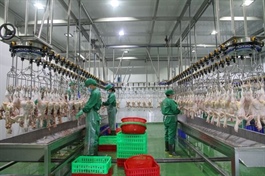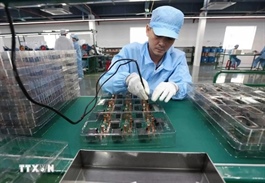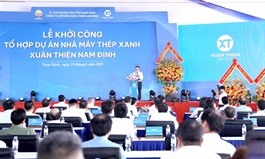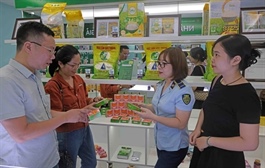Anti-fake campaign to support OCOP brands
Anti-fake campaign to support OCOP brands
The first four months of 2025 alone saw 34,000 cases processed, with over VNĐ4.8 trillion (approximately US$185 million) in fines.
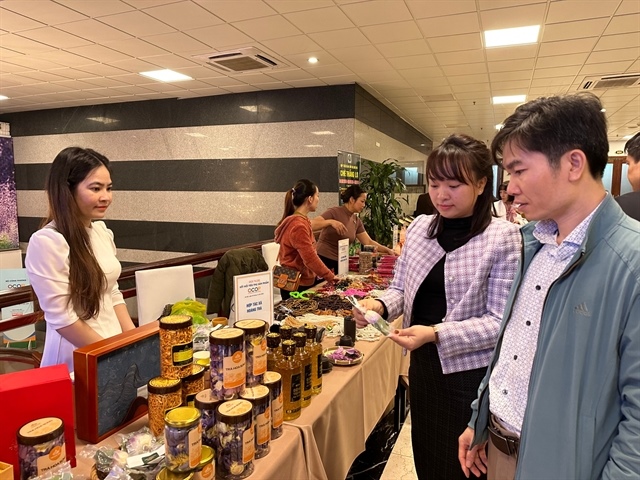
Customers learn about OCOP specialties at a trade promotion event held in Hà Nội last year. — VNA/VNS Photo |
Despite recent achievements in expanding the national 'One Commune One Product' (OCOP) programme, the growing prevalence of fake and falsely labelled products has undermined credibility and consumer trust.
The market is increasingly flooded with counterfeit OCOP products. Many unqualified or poor-quality goods are falsely labelled with three or four stars, appearing across online platforms and traditional markets. These fakes deceive consumers and damage the reputation of authentic OCOP producers who have invested heavily in meeting certification standards.
Inspections have revealed that many of these products lack proper documentation and certifications. In some cases, the packaging and branding of genuine five-star products have been illegally and precisely copied, leaving consumers unable to tell the difference. The situation is problematic in rural areas, where awareness of OCOP standards remains low and verification tools are limited.
The consequences are significant. While over 13,000 products nationwide have been certified with at least three stars by the end of 2024, and over 5,600 businesses have joined the OCOP programme, many producers struggle to bring their products to market due to counterfeit competition. This has discouraged some from seeking certifications, as the costs and effort offer little protection against brand theft.
Authorities have taken action. In 2023, over 52,000 violations related to smuggling and counterfeiting were detected. The first four months of 2025 alone saw 34,000 cases processed, with over VNĐ4.8 trillion (approximately US$185 million) in fines. Yet enforcement remains inconsistent and often slow to respond to new cases, while penalties are not always strong enough to deter repeat offenders.
Stronger solutions needed
Stronger and more coordinated measures are urgently needed, said experts and industry insiders.
First, anti-counterfeiting efforts must be made a top priority. Local authorities should step up random inspections, and violators should face strict penalties, including public disclosure, heavy fines and business suspension for repeat offences.
Second, a national digital database of OCOP products should be established, complete with unique QR codes for traceability. This would allow consumers to verify product authenticity instantly, particularly in rural and remote areas where fake goods are harder to detect.
Third, e-commerce platforms must monitor and remove listings of fake OCOP-labelled products. Platform accountability is essential to stopping the spread of counterfeit goods online.
Public awareness-raising campaigns are also crucial. Educating consumers on authentic OCOP products can help rebuild trust and encourage responsible purchasing.
OCOP remains a national programme rooted in local pride and identity. Allowing counterfeit goods to dilute its value would be a serious setback. Only through timely, decisive and systemic action can Việt Nam protect the true worth of its agricultural heritage and ensure OCOP continues to serve its intended purpose.
- 08:02 25/06/2025







